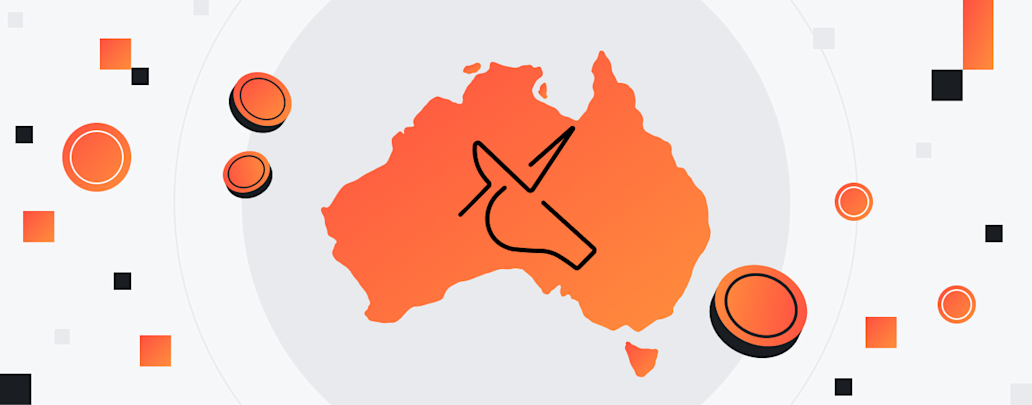Who are the Aussie unicorns in 2024?

Many things make Australia unique, but one of the less expected ones is the rapid rise of "unicorn" companies with big valuations, big ambitions and a track record that shows they’ve got what it takes for spectacular success in a short timeframe.
From fabulous fintechs to a powerhouse petcare business, these companies aren’t just thriving, they're reshaping industries and setting benchmarks globally.
We look at the current crop of Australia's unicorn startups, exploring their paths to success and the ingenious strategies propelling them into the billion-dollar club.
What is a 'unicorn' business?
Unicorn businesses (like their mythical namesakes) are relatively rare and, as a result, inspire a lot of interest and attention. Usually venture-capital funded and often technology-driven, a unicorn is a startup that is:
Privately held rather than publicly listed; and
Valued at over USD$1 billion.
What’s more, to attract the sort of interest from investors that catapults a startup to unicorn status, it has to be relentless about addressing a market need and solving real customer problems.
Which companies are Australian unicorns?
Here are eight Aussie unicorns that have soared to the pinnacle of startup success, blazing a trail for others in their industries and inspiring new generations of founders:
1. Canva
Valuation: USD $26 billion
If you haven’t used Canva to create a presentation, logo, CV or social media post you’d be in the minority. When it comes to graphic design, Canva effectively broke the barrier to entry – allowing anyone to quickly and easily use a range of templates, images, fonts, and other elements to create awesome content without having advanced design skills.
Launched in 2013, it’s been a runaway success and now operates in almost 200 countries and over 100 languages, with its users having created billions of designs since it came on the scene.
Canva's journey demonstrates the invaluable lesson of persistence for a startup. As Founder Melanie Perkins told Fortune, the company faced rejection from a daunting 100 VCs before ultimately gaining traction and evolving into the powerhouse it is today.
2. Airwallex
Valuation: USD $5.5 billion
Airwallex (yes, that’s us!) is reshaping how businesses handle money across the globe. Like many of our fellow unicorns, Airwallex started by solving a pain point that was going unnoticed.
Back in 2015, our four founders were running a coffee shop in Melbourne and got hit with hefty FX fees on their imported supplies. They figured there had to be a smarter way.
Fast forward nearly a decade, and Airwallex is now an Australian unicorn making life easier for thousands of other businesses by streamlining their accounts payable, spend management, FX, and global money transfers, to name just a few.
Despite its global expansion, Airwallex’s determination to tap into Australia’s dynamic startup ecosystem and its rich pool of fintech talent has been one of the keys to the company’s success.
3. Immutable
Valuation: USD $2.5 billion
Traditional gaming has captivated an audience of billions, but players have never truly owned the digital assets they acquire along the way. Immutable is a pioneer of Web3 gaming, offering both developers and gamers gaming innovations like blockchain that provide a way to secure ownership of digital items.
Immutable’s Co-Founder Robbie Ferguson has some golden tips for scaling your business as a founder. As he told Airtree, these include staying focused by writing yourself a weekly scorecard and tackling complex problems first before other issues that don’t move the needle.
Although it might seem counterintuitive, he believes economic downturns can be the best times to pursue ideas. “A bear market is the best time to build real product-market fit rather than have it smoothed over by artificial demand. It’s incredibly good discipline for building a company,” he said.
4. GO1
Valuation: USD $2 billion
Go1 has carved out an impressive niche in on-the-job learning and development, giving businesses a way to tackle upskilling and stay on top of compliance requirements by aggregating a wide range of content from more than 250 providers.
With over 70 tech partners, Go1 makes it easy for its 17,000 customers around the globe to plug learning into the systems their teams already use every day, matching learners with the most relevant material for their needs from the world’s most comprehensive learning library.
Co-Founder Vu Tran has lots of sage advice for startups on leveraging public information to get to know their customers and humorously suggests resisting the temptation to sneak extra time off work. Every day is an opportunity to learn and grow!
5. SafetyCulture
Valuation: USD $1.76 billion
SafetyCulture’s underlying idea is that actively involving employees in decision-making is key to creating a good safety and compliance culture. To help workplaces achieve this, it digitises policies and procedures, automates inspections and audits, and streamlines tasks, training and team communication.
Founder Luke Annear told Startup News “After noticing the use of smartphones in everyday life, I wanted to develop a solution for safety in the workplace to help prevent incidents before they occur.”
SafetyCulture’s growing customer base comes from diverse industries like manufacturing, construction, healthcare, sports, entertainment and hospitality. Its iAuditor app has transformed the traditionally paper-based processes in these industries to digital-based ones, and has become one of the most popular safety and quality inspection apps in the world, used more than 50,000 times per day.
6. Culture Amp
Valuation: USD $1.5 billion
Founded in 2009, Culture Amp provides employee engagement, performance and development tools and insights that businesses need to build a better experience for their employees. It now has around 2,500 customers in 50 countries, and a team of over 400 in Melbourne, San Francisco, New York and London.
As founder Didier Elizinger told SmartCompany, “What matters is how many people believe in you, not how many people don’t. If nobody you speak to understands your idea, perhaps that’s telling. But if even three or four people say they would use it, then it doesn’t matter if 1,000 people think it’s stupid,” he says.
Didier’s tips also include: fail out loud, over-communicate with your team and (fittingly for an employee experience business), know when to switch off from work.
7. Linktree
Valuation: USD$1.3 billion
Linktree was founded when brothers Alex and Anthony Zaccaria, along with co-founder Nick Humphreys, were running a music and entertainment agency, using Instagram to make artist announcements.
"We felt the pain of only being able to direct audiences' attention to one (link),” Alex points out, “(and) saw that musicians were so much more than the latest single they released. They had tickets to promote, festival lineups to share, products to sell.”
Highlighting the importance of startups having a laser focus and acting quickly to create their MVP, he notes “We built the first prototype of Linktree in less than a day.” This launched the now-iconic tool that enables Instagram users to streamline their bio link into a single gateway for multiple pages, enhancing their social media impact.
Linktree is now used by almost 25 million creators, artists and brands around the world. And despite its beginnings as a 'link in bio' tool, it has also become an eCommerce force that drives over $6 billion a year in gross value sales through its platform.
8. Pet Circle
Valuation: $1 billion
Recent years have seen pet owners spending more on their furry friends, looking for higher levels of convenience than supermarkets or traditional pet store retailers could offer. On top of this, old-school models of vet services and insurance weren’t serving pet owners as well as they could be.
Co-founder and CEO Michael Frizell said Pet Circle has experienced significant growth since setting out on its mission to “reinvent the experience of pet ownership, by building an integrated platform that connects our customers to 24/7 vet advice and offers the largest and highest quality range of pet products and services in Australia.”
Besides selling pet food and supplies online, Pet Circle offers subscription pet care services, including VetChat and Telehealth.
Are you the next unicorn?
If following in the footsteps of Aussie unicorns is something you’re inspired to do with your business, you’re not alone. You may be looking for the next big idea or already on the path towards realising it.
Taking control of your financial operations is one of the most powerful things you can do to support your growth trajectory. With that in mind, Airwallex is supporting the startup community’s growth through our new Airwallex for Startups program.
The program gives you access to grant opportunities, exclusive offers, education and community experiences and a host of other valuable resources.
It's open to any Australian startup founder or employee, aged 18 or above, with a registered ABN who works in a startup with fewer than 100 employees.
Join now and not only will you tap into incredible resources, but you’ll also get the chance to win a $10k Business Acceleration Grant – a neat way to kickstart your venture's growth and get you up and running.
Share

Izzy is a business finance writer for Airwallex. She specialises in thought leadership that empowers businesses to grow without boundaries.


